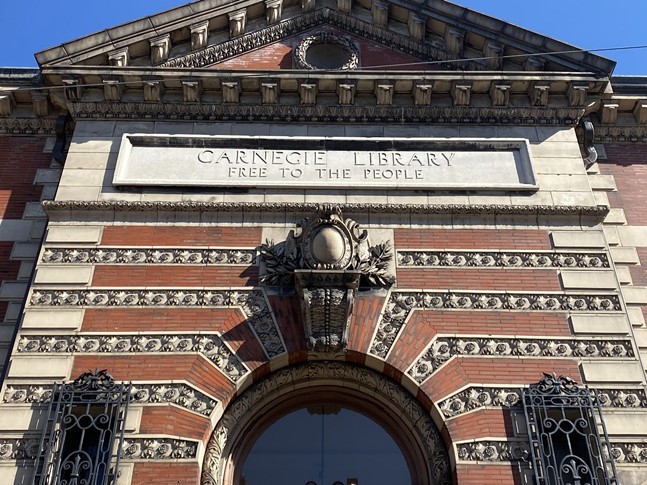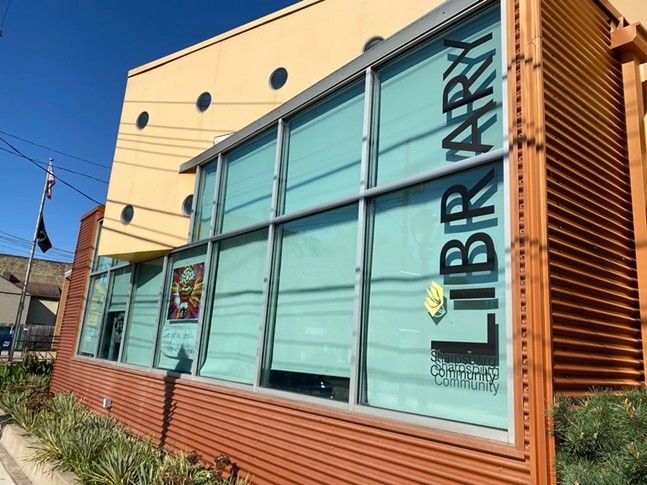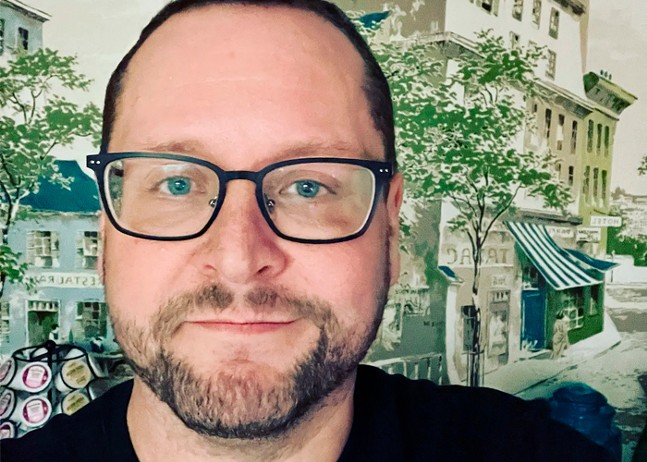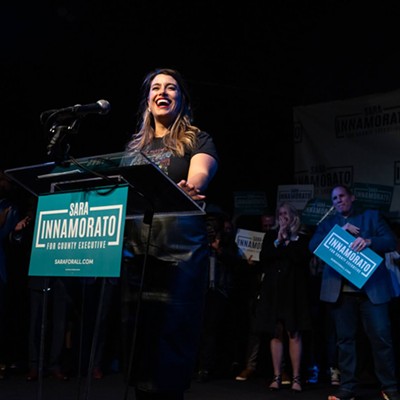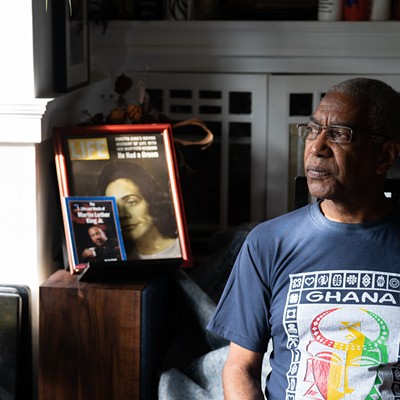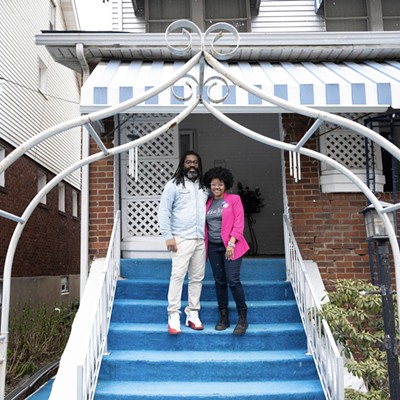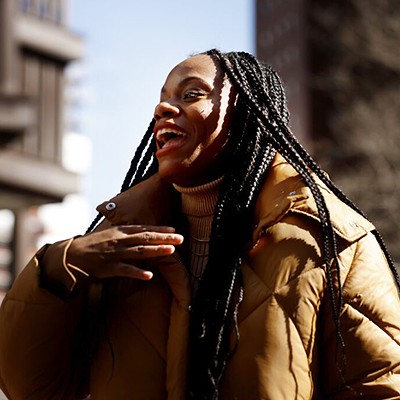This article was written and edited collaboratively among the Pittsburgh Institute for Nonprofit Journalism, Pittsburgh City Paper, and Belt Magazine with support from the Pittsburgh Media Partnership. Hear more about this story on the City Cast Pittsburgh podcast "Are Book Bans on Your Ballot on Nov. 7th" on Spotify or wherever you get your favorite shows.
Book bans targeting public and school libraries have become endemic in some parts of the U.S. Previously relegated to isolated cases in which parents challenged individual books, a variety of right-wing groups have begun pushing for sweeping oversight of the materials school and public libraries make available to their students. This has resulted in changes affecting policy, staff composition, and book acquisition, among other issues.
Here in Western Pennsylvania, attempts to restrict or “curate” library collections have occurred, but not at the rate that has been seen in other areas, including the eastern part of the state. Some schools have been the target of right-wing attempts to ban books, but others have seen educators and parents successfully push back on attempts to limit access to materials addressing topics that include sexuality, gender, racism, and American history.
That’s beginning to change as right-wing groups organize and push for greater oversight of school and public libraries.
A nationwide effort to reshape school boards has already impacted districts throughout the region. Pittsburgh Institute for Nonprofit Journalism covered one such case in Pine-Richland School District last year. Bankrolled by outside donors, groups including the controversial Moms for Liberty have made concerted efforts to get right-wing locals to run for office — even when these candidates don’t have children in the district where they’re running.
According to sources in the district and recent reporting, conservative residents in Pine-Richland have several nascent book ban efforts underway. Much as conservative donors helped propel a rightward shift on the school board, right-wing pundits from out of state such as controversial pastor John Amanchukwu have traveled to the district to claim its libraries hold books that are “pornographic.”
Advocacy organizations like the American Library Association (ALA) say such plans are part of a larger project to undermine librarians that is often presented as a way to strengthen parents’ rights.
“I’ve worked for the ALA since 2000, and I have never witnessed this scale and volume of demands to censor books in libraries,” says Deborah Caldwell-Stone, director of the ALA’s Office of Intellectual Freedom.
Some conservative parents claim there is a need to protect young learners from literature that deviates ideologically from the values they hold and that openly discusses sex and sexuality. These parents view young adult novels depicting sex, drug use, or racial discrimination as tantamount to propaganda.
“I felt like I was spinning my wheels and dealing with administrative red tape in the issue of sexually explicit content in the district,” says Paula Cinti, vice chair of the Westmoreland County chapter of Moms for Liberty. She claims that “It’s easy to see the intent to use library content to create activists for Marxist ideologies, which includes anti-American, divisive themes as well as pervasively vulgar sexualized content.”
Cinti views the ALA’s work, including the organization’s promotion of banned book clubs, as promoting “race division” and sexually explicit content. She also claims without evidence that the ALA is a "Marxist organization," which is neither reflected in any of that organization’s official material nor a commonly held understanding of the ALA’s mission. Republican-led states such as Florida have likewise severed ties with the apolitical nonprofit organization in part over a tweet by ALA President Emily Drabinski. (PINJ and Belt also reached out to the chairs and vice-chairs of Allegheny, Washington and Beaver counties’ chapters of Moms for Liberty but received no response.)
Moms for Liberty has generated considerable controversy since its founding in 2021. In June of this year, Vice reported on close ties between Moms for Liberty and the Proud Boys. Also in June, an Indiana chapter was forced to apologize after quoting Hitler in their newsletter, and the Southern Poverty Law Center now lists it as an anti-government extremist group. Jen Pippin, one of the founders of the group and chair of a Florida chapter, appeared on a network that has called Jewish people “seditious” in October.
Despite the organization’s ideology, Moms for Liberty has continued to add chapters across the Commonwealth as parents like Cinti organize.
The ideological tension between librarians and right-wing activists and school directors has come to a head in several Pennsylvania school systems including Hempfield Area School District, where Cinti lives; as well as Penncrest School District, Norwin School District, Pine-Richland, and elsewhere. As the temperature rises, some parents say they have growing worries about their children’s access to identity-affirming literature. In some districts, these conversations have encouraged liberal parents to enter local politics.
An upcoming election cycle that features numerous contested seats on local school boards means the conversation around book bans is likely to remain tense for the foreseeable future — this year’s election outcomes could impact which books kids see when they enter a local library in the Greater Pittsburgh region.
A watershed moment
Libraries have had policies in place for decades for choosing, vetting, and displaying a broad range of books in their collections, a reality which contrasts with the vehemence of recent book-ban efforts.Amy Anderson, CEO of the Allegheny County Library Association (ACLA) says public libraries in Pennsylvania have robust policies in place to curate their collections and field challenges.
“It's not an easy process” to challenge books, she says. “Of course, it's not meant to be. It's meant to [force] all involved to really take a look at the material and understand the content, why it is there, where it is and why libraries have it.”
“Libraries need to serve the entire public,” Caldwell-Stone says. “They’re what allow individuals to educate themselves and prepare to participate in the political process. They teach kids how to read. They offer tools for small businesses.” She also notes that libraries provide a host of services, including internet for people without access at home.
The COVID-19 pandemic was a watershed moment for conversations about education and books. Parents who might previously have overlooked school board meetings or left policy decisions up to administrative bodies began to get involved in educational politics en masse — on both sides of the aisle.
According to a video on the homepage of the Moms for Liberty site, when COVID-19 happened, “the country got to see behind the educational curtain."
Cinti mirrors that sentiment, saying, "The handling of the pandemic caused division among Americans." She says some newer books in Hempfield are about "identity politics" which she feels creates “angry activists." Her main concern, she says, is seeing her children educated “in a non-partisan classroom without sexualized content.” One concern, she claims, is that there are more LGBTQ-themed titles in her local schools than those about Dr. Martin Luther King, Jr.
Christina Emeran of the National Coalition Against Censorship says the shifting targets of some right-wing groups reflects a general sense of disquiet and powerlessness that some parents had during a confusing period in history. She notes that many of these conversations began during 2020, when many school systems mandated masks for their pupils.
“Perhaps that became more of a transference of energies,” she says. “I don’t think, at the time, that [conservative parents] anticipated how big a movement, and how many parents were in a similar situation of frustration.”
Those parents shifted from masks to Critical Race Theory (a graduate-level academic framework that posits systemic racism as a guiding force behind much of current American policymaking) have also pivoted to, most recently, condemnations of literature containing prominent LGBTQ characters and themes.
Emeran says getting involved with groups such as Moms for Liberty has gotten easier as individuals and organizations circulate lists of books deemed unsuitable for young readers. Notably, she says young people haven’t taken a leading role in these conversations.
“I’ve never seen a movement like a ‘Kids for Moms for Liberty’ group,” she says. If anything, Emeran says, students have stood on the side of keeping books threatened with bans available.
One of the titles targeted by Cinti and the Moms for Liberty is All Boys Aren’t Blue by George M. Johnson — a title that has become a flashpoint in many jurisdictions and is considered the most-banned book in the country. She also referenced Barry Lyga’s Boy Toy for depicting the author’s non-consensual sexual relationship with an older teacher.
Cinti provided the latter in the form of a link to BookLooks, a tool Moms for Liberty members often use to ring alarm bells about literature they consider inappropriate for school-age readers. The site, which claims to “make no money” from their work, says they are not affiliated with Moms for Liberty, but that they do allow such organizations to access their work.
“Rest assured,” the FAQ reads, “we do read the books we review in their entirety.” Cinti likewise says she has read in full at least 10 of the titles she objected to, including books such as The Perks of Being a Wallflower by Pittsburgh native Stephen Chbosky.
BookLooks rates books from 0 to 5 in terms of what they deem problematic. The site provides PDFs pulled from each book highlighting “inappropriate” passages. It also includes a profanity counter.
All Boys Aren't Blue is rated a 4 on BookLooks and has 88 passages excerpted under the review. Flagged elements include a trigger warning in the introduction and a chapter title, "BLACK. QUEER. HERE."
In the thumbnail, BookLooks describes the book as objectionable because it “contains sexual nudity; sexual activities including sexual assault; alternate gender ideologies; profanity and derogatory terms; alcohol and drug use; and controversial racial commentary."
The "controversial racial commentary" includes passages such as: "Despite my school consisting of mostly Black students, there were only a few Black faces on the walls of our hallways … each alternating with white historical figures," and "Why didn't he see that white people had made a choice to enslave another race?"
Books such as Lyga’s Boy Toy are blunt in their candid depiction of sexual reckoning. Lyga’s book also contains a plain-spoken portrayal of molestation, as do many of the titles targeted to be pulled from collections and curricula including Chbosky’s. Caldwell-Stone says this is by design.
“Often, claims are made that books intended for older young adults or high-school students are ending up in the hands of five-year-olds — that’s false,” Caldwell-Stone says.
“Many of these books dealing with sexual education, gender identity, and sexual orientation are nonfiction works intended to deal with issues around consent and self-care, particularly for young people who are gay, queer, transgender. All of them are appropriate for some students to read.”
Caldwell-Stone says librarians are trained to direct user inquiries and connect readers with the right books for them.
In some cases, inflamed discussions around book bans or the prohibition of certain topics in the classroom have led to other parents pushing back. Amy Sheridan is now running for office as a left-of-center school board candidate in Franklin Regional School District. She got involved in local politics after a parent-led effort to prevent students from reading Marjane Satrapi’s graphic novel Persepolis. That effort failed, in part because Sheridan says a majority of parents supported students reading the book.
“The parents doing the objecting weren’t even parents of students in those grades,” she says, noting that the subsequent fracas actually led to an important dialogue.
“My sense is that the environment has not gotten worse — if anything, this caused some civil discussion among parents about who should be deciding which books are available, what the process for choosing them is, and, if you don’t want to read then, what do you do?”
Sheridan says she’s now running for office because “we just want it to be boring again” in the district.
For those opposed to censorship or wishing to maintain the status quo in school districts, there are two challenges to overcome. The first is the proliferation of national funding among local candidates for office. Moms for Liberty, a 501(c)(4) organization, also seems to have deep pockets, and though the group is not required to disclose its donors, its PAC has received large donations from prominent Florida conservatives.
The second, at least for Pennsylvanians, is a nebulized landscape of 500 school districts, numerous charter and parochial schools, each with its own administrative apparatus and school board. For every district with assertive leadership and a moderate school board, there is another nearby that is one election cycle away from dramatic political change.
The local landscape
PINJ and Belt Magazine sent out numerous Right to Know requests to area school districts but, in many cases, received only a cursory reply. In addition, PINJ contacted 18 librarians and school directors but received no reply.One Ohio district, Newton Falls, and one West Virginia district, Monongalia, did respond to Right to Know requests. Newton Falls School District provided a folder of emails that showed teachers promoting a Pride event for LGBTQ students and providing trauma-informed training for their peers. The district also provided documentation of several policies designed to reinforce free inquiry and support the district’s process for maintaining a robust library for student use. Monongalia offered to provide written documentation of requests for review of instructional materials, but the only recent challenge was against To Kill a Mockingbird. That request, made by a Black parent concerned about racial slurs in Harper Lee’s novel, was denied.
In part due to Pennsylvania’s many school districts, current information on book ban attempts within the state proved somewhat difficult to access. The Commonwealth’s Department of Education responded to all submitted requests at once and then sent boilerplate responses that the request was at once too vague and too broad, despite the specificity of the requests.
“PDE does not have any information that is responsive to your request in its possession or under its custody or control,” the department’s Agency Open Records Officer said in a response. Responding on behalf of the West Jefferson Hills School District, law firm Weiss Burkardt Kramer LLC said they did not find communications relevant to PINJ’s request, though they did furnish copies of the district’s library policies for book acquisition and display.
Public libraries in the Commonwealth face a different set of constraints. They vary in their governance, but most are overseen by boards composed of local residents who are appointed by elected officials in the communities those libraries serve. This sometimes leaves local libraries vulnerable to political shifts — in Eastern Pa., one borough cited lack of alignment with “conservative values” as grounds for slashing library funding.
Still, Anderson says Allegheny County public libraries haven’t faced the same pressure as local school systems. “We have been pretty lucky compared to other parts of the country,” she says.
Data from PEN America puts Pennsylvania at third in the nation for the number of book ban attempts. Many Pennsylvania ban attempts began after the compositions of local school boards changed, as has been the case in Central Bucks School District in the eastern portion of the state. This mirrors trends elsewhere in the country, where individual parents have been able to single-handedly force the review — and in some cases removal — of dozens of books.
The state’s hundreds of school districts also means hundreds of school boards, many of them overseeing districts in rural and heavily conservative parts of the state. Pine-Richland is just one of the districts with a deeply divided board and a crowded electoral field in 2023.
Whether in the Commonwealth or elsewhere in the country, advocates say these efforts consistently follow a pattern, one beginning to come into focus in Southwestern Pa. and the tri-state region.
“We’ve observed that these organized groups use social media, often private Facebook groups, to share book lists,” Caldwell-Stone says. “It’s not just Moms for Liberty, but also Parents Defending Education and No Left Turn, who are organizing groups across the country.”
The 2023 election cycle could prove to have dramatic impacts on the prevalence of book bans. Allegheny County alone will see races contested in 21 school systems from Allegheny Valley to Quaker Valley. Recent demographic shifts mean that many of these jurisdictions could end up with either a conservative or liberal majority depending on turnout and interest.
For area writers whose books have come under scrutiny, the situation is baffling, worrying, and galvanizing all at once.
Progress is not linear
Christopher Barzak first became aware of an attempt to ban his 2016 book Wonders of the Invisible World when a friend texted him. Texas state legislator Matt Krause had drafted a list of around 850 titles which he argued could cause young readers “psychological distress,” and Barzak’s book was listed among other titles, including several of the same books which Cinti had shared with PINJ and Belt.Barzak says the moment he received the text was surreal.
“I didn’t know what she was talking about,” he says. “It’s that same kind of feeling as when someone’s playing a practical joke on you.”
Calling the practice of censoring books “archaic,” Barzak says this instance was the first moment in his career when something he’d published had gotten so much blowback.
“Clearly, progress is not linear,” Barzak says.
Barzak is an award-winning author and a professor at Youngstown State University. He is queer, and his speculative fiction, including a recent anthology of reimagined fairy tales, prominently features queer characters and plotlines.
For Barzak and authors like him, recent censorship efforts hearken back to a time when LGBTQ people were often forced to stay closeted for their own safety. Barzak says that encountering queer narratives gives LGBTQ young people a chance to see themselves in the art they encounter — as a queer kid growing up in rural Ohio, reading queer characters, “showed me back to myself.”
He hopes that his own writing can do the same for the kids who read it.
Landing on Krause’s list “reminded me of being a kid and being bullied and told to shut up, to be invisible,” he says.
On the positive side, Barzak says Krause’s efforts brought his book to the attention of Texas young people. Sales of Wonders of the Invisible World “ticked up” after the episode, and Barzak says his publisher and colleagues at Youngstown State have been supportive. Still, he has the sense that book-ban efforts are organized and well-funded, and he worries that the worst is yet to come. For writers without something like a teaching position to fall back on, being banned has the potential to impact their livelihoods, according to Barzak.
“It brings another layer of reality for artists and creators,” he says. “When they’re silenced, it’s not just political theater at that point — you’re actively cutting off a person’s ability to do their work and support themselves.”
As for how locals can push back in the short term, Emeran of NCAC has a clear message: “Always show up at school board meetings.”
She says that there are online resources (including from her organization) pertaining to the rationale for particular books and notes that “most of the time, it’s very powerful to have students themselves come [to school board meetings to] talk about these books and talk about how they’ve impacted their lives.”
An arms race
Locally, parents like Sheridan are firmly focused on maintaining the status quo.“I’m sure people will stand up and say ugly things again, but I hope they’re aware that people will stand up with a counterpoint,” she says. “We now know how many people are on the side of reasonableness.”
Right-wing parents are also highly motivated. Cinti says Moms for Liberty has given parents like her a model for how to approach school boards and that the national organization is leading the charge in beating back what they perceive as an “anti-American, anti-family perspective.”
Organizations against censorship are attempting to keep pace with groups like Moms for Liberty by making resources and data available. Though prohibited from political speech as 501(c)(3) organizations, the ALA and NCAC have each created advocacy tools that offer ways to speak up in favor of First Amendment rights, libraries’ ability to offer a broad spectrum of reading materials, and children’s access to identity-affirming literature. Among these initiatives are NCAC’s recently launched Kids’ Right to Read Project.
Anderson of ACLA says area libraries have policies in place to handle challenges to books. She encourages locals to approach their local libraries with concerns before turning to outside groups.
“Rather than jumping in and deciding that a book is inappropriate or what have you, we encourage them to have conversations with their librarians to see why that book was chosen and why it is important to have it in the library,” she says.
“We are taxpayer-supported organizations, and we have to make sure that we support all of our taxpayers.”
It remains to be seen if Pennsylvania lawmakers have the appetite for taking action in either direction — a recent Pa. House bill banning book bans would likely be dead on arrival in the GOP-led state Senate, unlike Illinois which became the first state in the nation to ban book bans in June of this year.
Instead, the debate will likely continue to play out in local school districts. Hempfield Area, where Cinti lives, now has codified restrictions of sexual content within the district’s libraries. Meanwhile, school board seats in Greater Pittsburgh will go to community members on either side of the book-banning issue, like in Pine-Richland, where dueling slates of candidates have staked out opposing positions.
Caldwell-Stone says polling offers some cause for hope for those worried about book-banning efforts.
“Consistently, polls tell us that the vast majority of persons in the US across political parties oppose government censorship and believe … [that] it should be parents deciding what their child reads,” she says. “The challenge is, of course, getting them engaged in protecting their First Amendment freedoms and standing up for the community institution that is their library.”
If there are efforts to ban books in your area, contact PINJ at [email protected].
(Correction: This story previously cited a tweet by ALA president Emily Drabowski. The story has been edited to reflect that her last name is Drabinski.)

